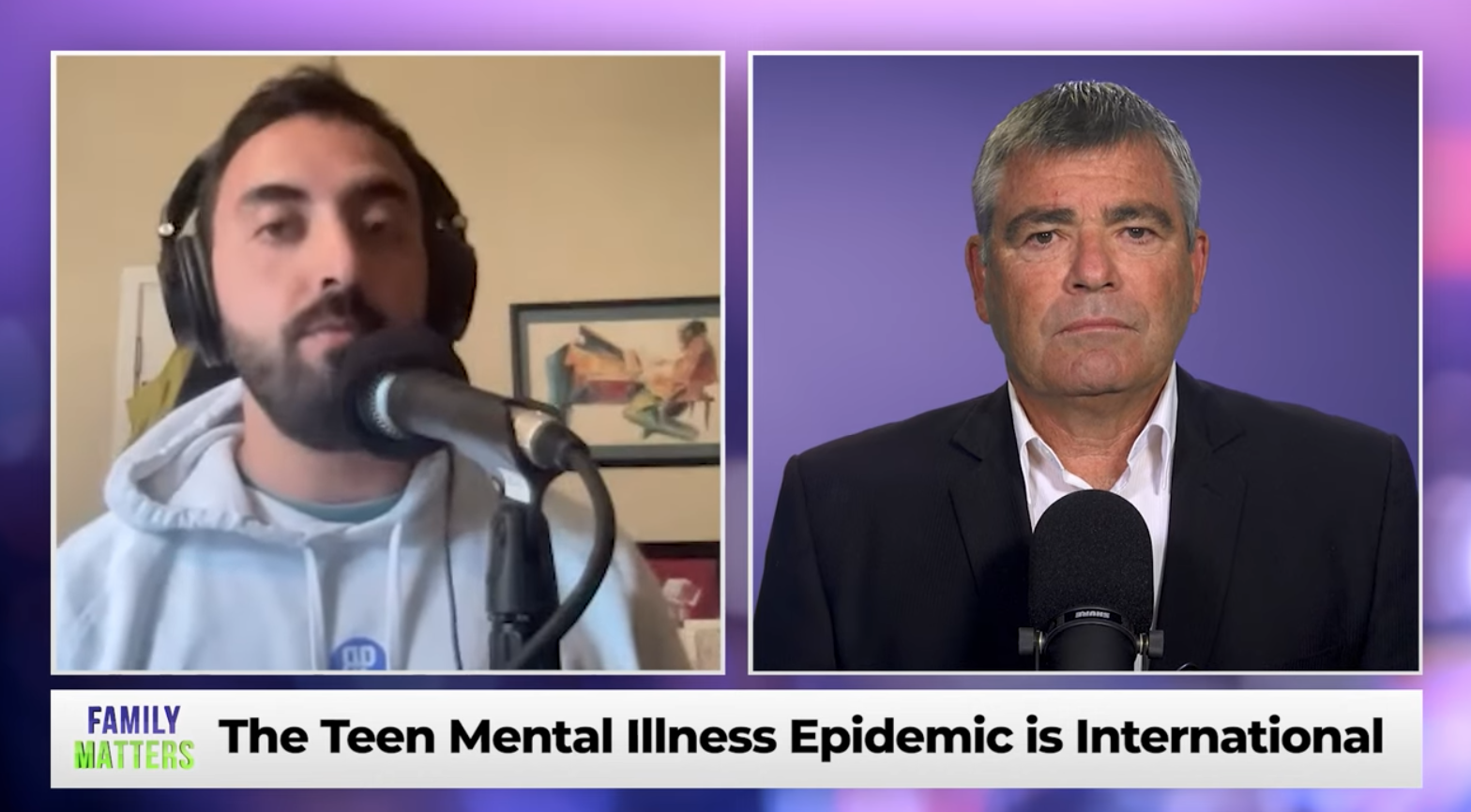Family First just interviewed an expert on the effects of digital media on the mental health of youth – you can view this HERE.
Here is our summary – with comment for youth leaders / parents / pastors:
“Teen mental illness – an affirmation of the need for Christian youth ministry”
We’ve lived through a significant digital change.
- The new thing to know is that use of digital devices directly parallels an increase in mental health challenges, including suicide, depression, anxiety, self-harm and more.
Time on devices results in
- less play
- less socialisation
- less sleep
- less physically healthy
- and less mental health.
What’s happening on the devices?
- These are addictive platforms
- Algorithms play into personal insecurities – to feed the addiction.
The spiral is further reinforced by FOMO amongst youth (fear of missing out). This makes it difficult for parents to intervene, to get kids away from these platforms.
As a comment from the interview, “We’ve been overprotecting kids in the real-world, but under-protecting them online.”
COMMENT FOR APPLICATION: This is something pastors and youth leaders could tell parents – while noting below and other ideas.
Of note – outcomes of the digital age have been worse in ‘highly individualised’ and ‘non-religious’ cultures like our own.
COMMENT FOR APPLICATION: The Christian faith is something of a protection in the data – even while not an entire protection. This is worth knowing about – to note as a (comparative) benefit of Christian youth ministry.
Developmentally…
Because young peoples brains are still developing They have less impulse control. This means they are easily turned, sucked in, manipulated, addicted and ‘shaped’. Online platforms are therefore considerably dangerous for youth – as compared to adults. This is evidenced in the data.
As an example, the average girl spends 3 to 4 hours per day in social media (and screen-time 8 to 9 hours daily). There is a DIRECT correlation between this and depression, as one example.
FOR APPLICATION: Delaying ready (easily accessible) internet access until 13 and social media until 16 is an example of a solution .
But how can a parent do this if the youth suffers from FOMO?
Parents need to recognise this is a problem – and to team up.
Groups of families could unite, with similar ideas like no smart phones until 14 and social media until 16 – so their kids have peers in a similar situation. (These ages are the recommendations from the interview, based on data)
It was noted that NZ Governments decision to ban smartphones from schools is very positive – in view of what the data says about their effects on mental health.
Summary points regarding the gospel and Christian witness
While helping any youth with an emotional or mental issue requires wisdom and sensitivity – some broad points are clear.
- 1. Parents are wanting their kids socialising more – as contrasted with time on devices, and youth do want that socialisation. This is a promotional point for Christian youth ministry.
- 2. Youth would be helped if PARENTS could be alerted to these issues – with suggestions like the above re delaying the giving of smartphones.
- To share personally: We have 4 boys, 3 are teenagers. They get phones at 16yo – while their friends have them prior. They’ve survived the ‘FOMO’ – because we DO have many friends who have likewise delayed giving their kids smartphones. Our kids have also then had amazing experiences – beyond sitting looking at a gadget (like shooting real things vs in games, or actually jumping into rivers vs only in games, or actually lighting fires and burning things vs ‘bombs’ in games).
- 3. Youth are genuinely in need of more affirmation, love and hope than the world is giving them! Churches – and the gospel (God himself) – can offer this.
There is a need for what our churches can offer youth.
Church-based youth ministry could yet grow again in this nation – if we can tap into these recognised needs with both parents and youth.
For senior leaders in churches / elders boards etc…
- As a trend, a decade or more back – we addressed the ‘youth problem’ by employing youth leaders.
- For many reasons, as a general pattern and observation across New Zealand, this hasn’t worked.
- (If you don’t know already – there are few paid youth leaders today compared to 10 years ago. It’s unfortunate).
- What is maybe now needed is for Church leaders to give THEIR OWN TIME to youth work!
- Do we care enough to act?
- …the alternative being that youth are neglected, and maybe then walk away.
- Is it right that we run Sunday services – while ignoring youth
- …the alternative being that we decided to run a small youth group ourselves – enjoying learning afresh how to have fun, creating experiences they’ll invite friends to, while engaging around the real issues of faith.
- We encourage that any person who is willing to relate to youth, taking a selfless interest, can do youth work.
- Do we care enough to act?
What do you take away from this reflection?
What could you do?
Who could you share a thought with – to encouraging an action step?





